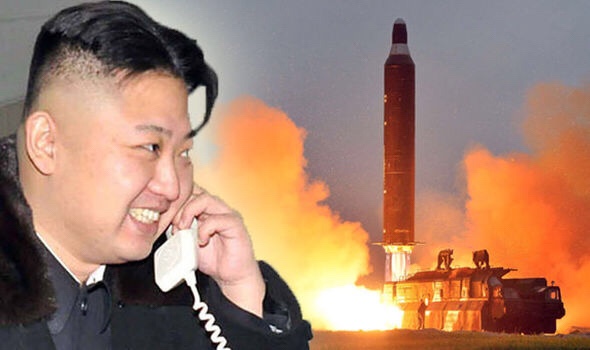 The CIA is worried about North Korea selling nuclear tech to the highest bidder
The CIA is worried about North Korea selling nuclear tech to the highest bidder“There are billions and billions of dollars in missile sales alone that could be made.”
Alex Ward
Jan 24, 2018, 11:10am EST
North Korea could potentially start a nuclear arms race by selling its technological know-how to other countries — and do so secretly.
That’s one of the main takeaways from CIA Director Mike Pompeo’s Tuesday remarks at a think tank event in Washington. Pompeo, a hawk with an extremely close relationship with President Donald Trump, argued that cash-strapped North Korea could decide to auction off its nuclear and missile technology to make desperately needed money, especially to Iran.
It would be a bold and risky move, but it has a macabre logic to it. North Korea likely would prefer to bring in hard cash by trading normally with other countries. The problem for Pyongyang is that it is heavily sanctioned by the US and other UN member nations because it refuses to abandon its nuclear and weapons programs. That stops it from sending some of its top potential exports like iron or seafood abroad.
That means North Korea is desperate for funds and could choose to sell what it knows about building weapons of mass destruction in order to make a buck. And it already has a list of willing customers: Experts told me that North Korea previously sold its nuclear technology to Pakistan, Iran, and Syria — and that there’s no reason to think it won’t do so again.
“Think of last year’s missile and nuclear tests as a giant arms brochure,” Harry Kazianis, a North Korea expert at the Center for the National Interest, told me. “There are billions and billions of dollars in missile sales alone that could be made.”
Zachary Keck, a nuclear expert at the Nonproliferation Policy Education Center, told me that Pyongyang’s new capabilities likely increased global demand for its weapons knowledge. Countries will mostly want to know how to make and reliably launch shorter-range missiles, he continued.
But it gets worse. Kazianis added that Pyongyang could smuggle weapons designs on a flash drive — yes, a flash drive — or simply break down missiles into small components and ship them through friendly countries. That would make it difficult for the US to detect if North Korea actually started selling blueprints or physical weapons.
“These are terribly difficult problems in incredibly tight spaces, and when you are moving information, it is sometimes difficult to detect that that information has moved,” Pompeo told the conservative American Enterprise Institute on Tuesday. “So if someone asks me as the senior intelligence leader of the CIA, can you guarantee this [would be uncovered], I would say absolutely not.”
It’s a bleak picture: A world possibly full of more usable missiles and nuclear weapons, rather than fewer, thanks to North Korea — and the US may be somewhat powerless to stop it.
North Korea is creative in how it avoids sanctions
North Korea knows the world’s eyes are on it. That’s why it needs to find less-than-savory ways to bring in money to help funds its nuclear activities.
As Vox’s Zeeshan Aleem wrote last year, a December 2017 report from the Institute for Science and International Security, a Washington think tank focused on nuclear nonproliferation, found that a whopping 49 countries have violated UN Security Council sanctions imposed on North Korea between March 2014 and September 2017.
Here are some examples: Chinese ships secretly transfer oil to North Korean ships out at sea. US spy satellites spotted this illicit activity about 30 times since last October, though China has denied any wrongdoing.
Russian tankers have also transferred fuel to North Korean ships at sea at least three times in recent months in defiance of UN rules. Last September, Reuters reported that this year, at least eight North Korean ships carrying fuel sailed from Russia to North Korea despite officially declaring that they were headed to other destinations.
These moves show the lengths to which North Korea will go to make money, directly defying the international community in the process. Selling nukes could be its biggest money-maker of all.
No comments:
Post a Comment